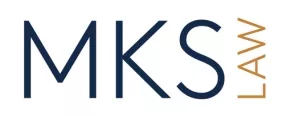- in North America
- with readers working within the Retail & Leisure industries
At an appropriate stage in an investigation, consideration ought to be given to administering a polygraph examination of the principal target or other primary witnesses. Over the last few decades, there have been significant improvements in polygraph instrumentation and technique, and scientific study verifying the validity of polygraphs. A polygraph examination, properly administered by a well-trained and competent polygraph examiner and using a validated testing technique, has a high degree of accuracy in detecting truthfulness or deception, in our view.
Purpose of Examination. Polygraph examinations are generally administered for three purposes, as defined by the Standards of Practice (January 10, 1999), published by the American Polygraph Association.
- Evidentiary Examination: A polygraph
examination, the written and stated purpose for which, agreed
to by the parties involved, is to provide the diagnostic
opinion of the examiner as evidence in a judiciary
proceeding. In Federal Courts in the United States,
admissibility of polygraph evidence is controlled
substantially by trial judge discretion under F.R.E. 702 and
the decision in Daubert v. Merrill Dow Pharmaceuticals,
Inc., 509 U.S. 579, 113 S. Ct. 1786, 125 L.Ed2d 469
(U.S. Cal. 1993), though some Circuits continue to adhere to
a per se exclusion of polygraph evidence. In State
courts in the United States, as of January 2002, 18 States
admit by stipulation of the parties, in at least some
circumstances, evidence of the results of polygraph testing.
Of the remaining 32 States, the courts have either rejected
admission of polygraphs, including by stipulation, or have
not addressed the issue.
- Investigative Examination: A polygraph
examination for which the examination is intended to
supplement and assist an investigation and for which the
examiner has not been informed and does not reasonably
believe that the results of the examination will be tendered
for admission as evidence in a court.
- Specific Issue Examination: A
single-issue examination, almost always administered in
conjunction with a criminal investigation.
While there has been a trend towards the acceptance of polygraph evidence by stipulation of the parties, we are not suggesting that a polygraph test be administered for the purpose of conducting an Evidentiary Examination. The polygraph examination that should be used in aid of an inquiry is an Investigative Examination, used as a tool to elicit specific information that cannot usually be obtained by standard interview methods. Typically, an individual being examined does not wish to have his credibility impugned by being caught in a lie, or for that matter, to be even suspected of lying. And since he does not know the depth of knowledge possessed by those who will later review the results of his examination, he is more likely to provide information relating to various circumstances that surround an issue, than he would if he was not "wired to the machine." The information disclosed by an examinee may appear, to him, to be irrelevant or even exculpatory, yet such information can be of significant value to investigators and analysts in their efforts to unravel a mystery that may involve a complex tangle of interrelated facts and events. The disclosure of such information may reveal material aspects of a fraud or wrongdoing, even when the examinee will not actually admit to having committed a wrongful act. An Investigative Examination with a polygraph may also disclose information that helps to establish the roles played by other involved parties, alleged confederates or co-conspirators, the location of assets, the flow of suspected funds, and other relevant transactions or activities.
In a very complex and long-running fraud inquiry, there is much to be learned about relationships between a target and various apparent confederates and third parties. A polygraph used in an Investigative Examination may prove helpful as a tool to obtain this information. It can only be used with the consent of the subject. Oftentimes, apparent wrongdoers are willing to submit to a polygraph examination to 'prove' to themselves and to those for whom they care that they are not lying about their exculpatory testimonial narrative, for instance, or for other reasons.
The content of this article is intended to provide a general guide to the subject matter. Specialist advice should be sought about your specific circumstances.


